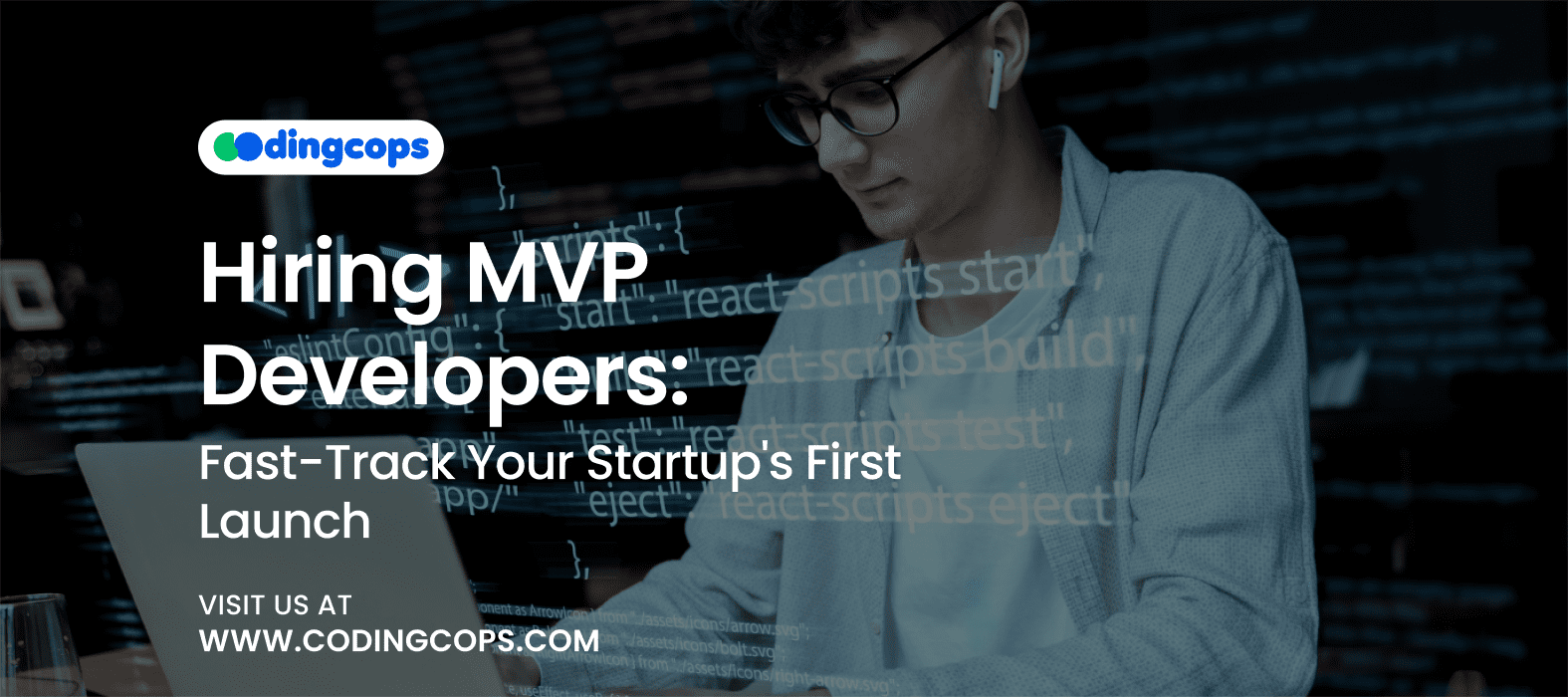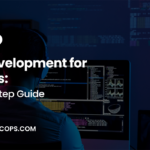We all know that we are living in a rapidly changing world. The advancement today we are astonished at will vanish tomorrow as the new one will take its place. Hence, startups need to speed up by deciding to hire MVP developers for building their MVP projects.
MVPs are not only limited to startups, but big businesses also utilize them as a strategic tool. They are mostly associated with startups because of limited budgets. However, the role of MVPs in today’s world can’t be neglected as they grab the market instantly and let you have the feedback so you may iterate and fix it.
According to a study, startups save up to 70% by implementing an MVP-first strategy. So, why don’t startups choose it as their fundamental tool?
In this article, we will take you through the basics of MVP development and the process of hiring MVP developers for your project.
So, stay tuned with us!
MVP Software Development, First!
Before we look into the matters of MVP developers, let’s understand what MVP software development actually looks like.
MVP is the abbreviation for Minimum Viable Product, and is a simplified version of a software product with only core features. Such products are developed to satisfy early bird users and gather their feedback.
It follows the principle of learn-build-measure.
What’s the goal of an MVP
The ultimate goal of an MVP is to test assumptions, reduce development costs, and check the product before it is launched in the market. This lets the developers know the functionality errors or bugs in the product and provides the chance to enhance it before launching.
This software development strategy is especially important for startups and new businesses seeking low-risk paths to launch their products or services.
Benefits of MVP Software Development for Startups
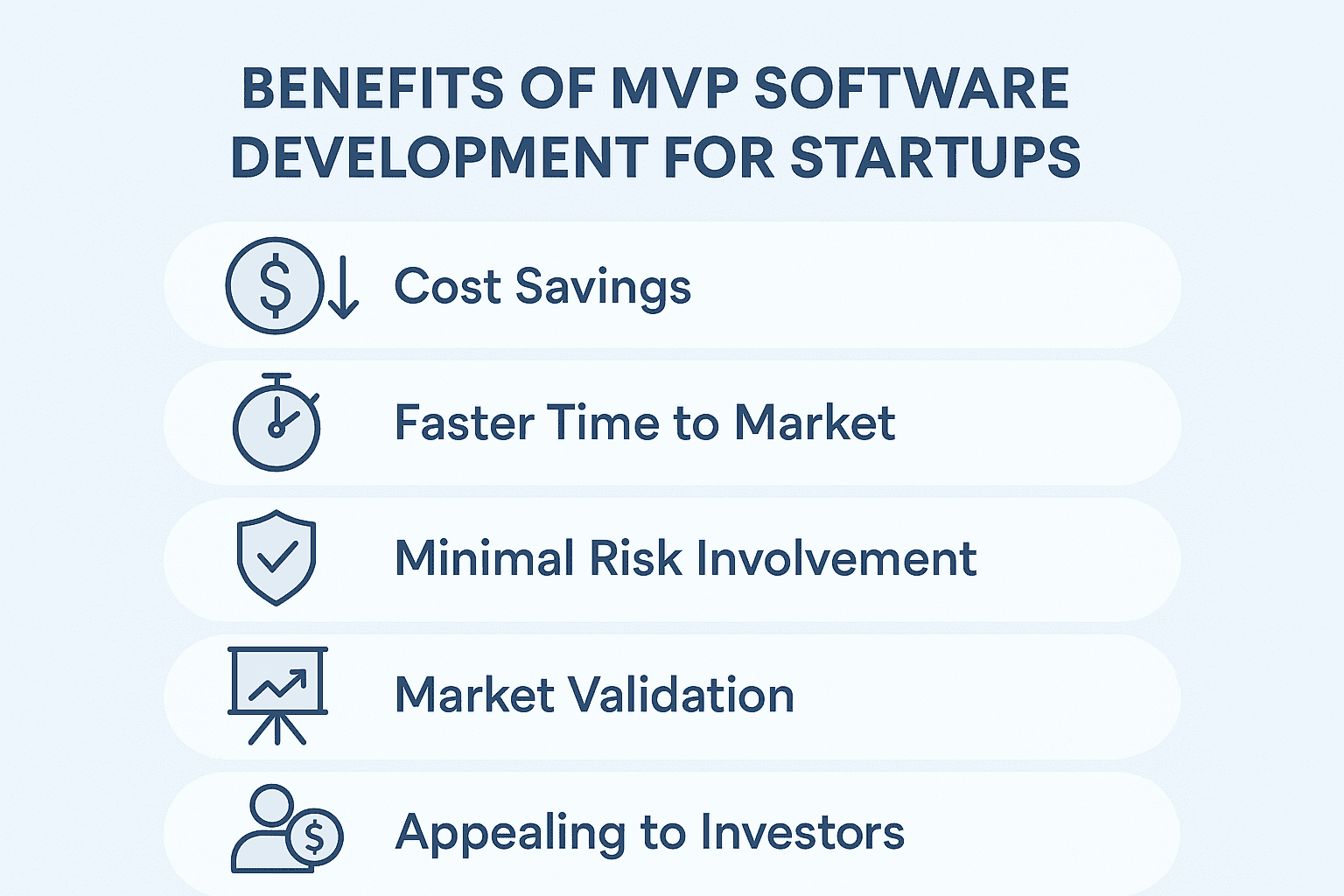
Adopting MVP software development has a long list of benefits for startups. Let’s review its core benefits.
Cost Savings
Firstly, there is very little initial investment in building an MVP compared to building a complete product. This allows startups to perform well while conserving resources.
Faster Time to Market
Secondly, in full-scale development, you have to wait for months to launch a full product. However, the scenario in MVP development varies as startups can release an MVP in weeks. This speed allows businesses to reach the market faster and beat competitors to market.
Minimal Risk Involvement
Moreover, MVP development involves developing an application’s core features. This reduces the development to minimal features, which gives startups a chance to gather feedback more effectively to identify and address potential problems at the early stages. This mitigates the risk of product failure.
Market Validation
Launching a product with minimal features in the market helps startups understand the real demand for the product. Moreover, it prevents putting extra effort and resources into a product that doesn’t resonate with the customer mindset.
Appealing to Investors
Lastly, MVP development attracts the attention of investors as there is minimal investment involved. Plus, the risk factor is less compared to developing a full-fledged product.
MVP Developers – Are they Aliens?
You must be taking MVP developers as aliens because they develop a core features application in a few weeks. So to confirm, they aren’t aliens!
MVP developers are professionals well-versed in building software products, specializing in building early-stage versions a products. The thing that distinguishes them from traditional software developers is that they prioritize speed, learning, and iteration rather than scalability and building a complete product.
What do MVP Developers Have?
The MVP developers come with:
- Technical skills: Coding, expertise with various frameworks, and integrations.
- Product thinking: Knowledge to prioritize the core features.
- Lean Startup Methodology: Learn-build-measure cycle.
Key Skills to Look for in MVP Developers
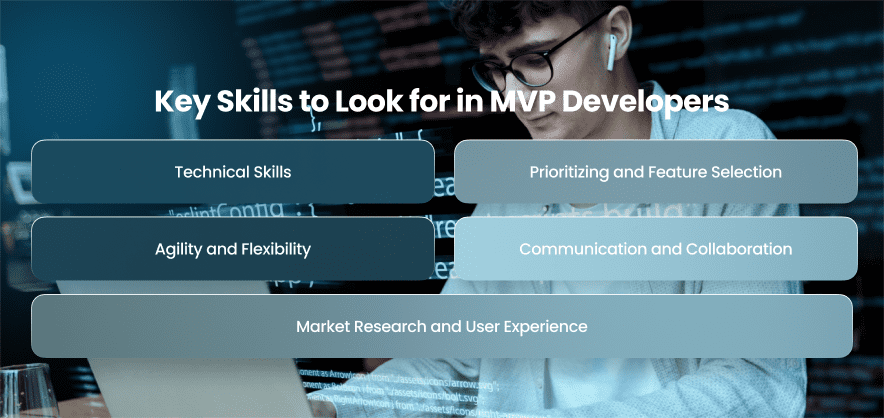
Choosing an MVP developer doesn’t mean you only need a developer with solid technical skills. It is about understanding the dynamics of a startup, the needs of clients, and other skills that are mentioned below:
Technical Skills
Firstly, look for an MVP developer having top-notch technical skills. He must be proficient in programming languages and frameworks suitable for rapid development. Moreover, he must be able to handle API integrations and work with databases efficiently.
Prioritizing and Feature Selection
Secondly, an MVP developer should know the process of feature selection and prioritizing features. This is another core skill that defines the capability of an MVP developer. He should know how to use prioritization techniques to determine which could be the core features of the application.
Agility and Flexibility
A good MVP developer possesses the agility and flexibility to adapt the changing requirements. He must be able to add or remove features from the product when needed and reprioritize features.
Communication and Collaboration
Moreover, MVP developers must possess strong communication and collaboration skills that enable them to convey ideas clearly and understand feedback. While building a product, they have to interact with technical and non-technical people who require strong communication skills.
Market Research and User Experience
Employ developers who understand the target audience and their needs. Besides, developers should create user-oriented solutions that improve the user experience by making the product easy to utilize and interact with.
Types of MVP Developers
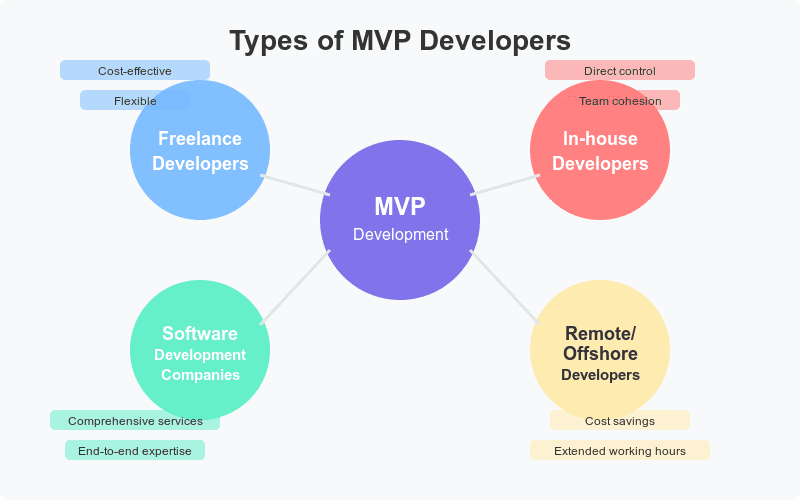
You can find various types of MVP developers in the market. You need to choose the one that suits your budget, timeline, and control needs.
Freelance Developers
Like you hire full-scale developers from freelance platforms, you can hire MVP developers from those platforms too. All you have to do is post a job on a top freelance platform or look into the profiles of MVP developers and hire the one that meets your hiring criteria.
Pros and Cons of Freelance MVP Developers
| Pros | Cons |
| They offer affordable solutions. | Risk of not meeting the deadlines. |
| You can hire from any region or country. | Quality varies from developer to developer. |
| They offer flexibility in working. | No long-term support |
In-house Developers
If you have no issues with budgeting or infrastructure costs, you may hire an in-house MVP developer. The in-house developer is an addition to your office team, and he’ll work with you like your other workers.
Pros and Cons of In-House MVP Developers
| Pros | Cons |
| You enjoy full control over in-house developers. They do what you ask them to do. | Hiring and maintaining an in-house MVP developer is expensive. |
| They put full focus on your product development as they work dedicatedly for you. | Recruiting such developers is a time-consuming task. |
| It is easy to align an in-house developer with all processes. |
Software Development Companies
For building an MVP, you can get assistance from nearby software development companies, following the IT staff augmentation model. Such companies have proficient and reliable MVP developers capable of delivering what you expect.
Pros and Cons of an MVP Developer from a Software Company
| Pros | Cons |
| You get end-to-end services. | It is a costly option to hire from a software development company. |
| They have solid experience in working with startups. | |
| Scalability is easier. |
Remote/Offshore Developers
Lastly, you can hire a remote/offshore MVP developer with proven experience working with MVP products. Hiring a remote dedicated developer will give you all the perks of in-house developers. Plus, it will save you huge costs.
Pros and Cons of Remote MVP Developers
| Pros | Cons |
| It is an extremely cost-effective option. | Timezone and communication challenges may arise. |
| You can hire from any country, allowing you to select a developer from a vast talent pool. | You have to manage the project yourself. |
| Scalability is easier. |
Cost of an MVP Developer in the USA
When it comes to cost, we can’t give you an exact figure of what an MVP developer charges. However, calculating the cost depends on various factors such as the demography of the developer, the years of experience, project complexity, and core features to be developed.
All these factors come together, and the cost for an MVP developer is estimated.
How to Choose the Right MVP Developer
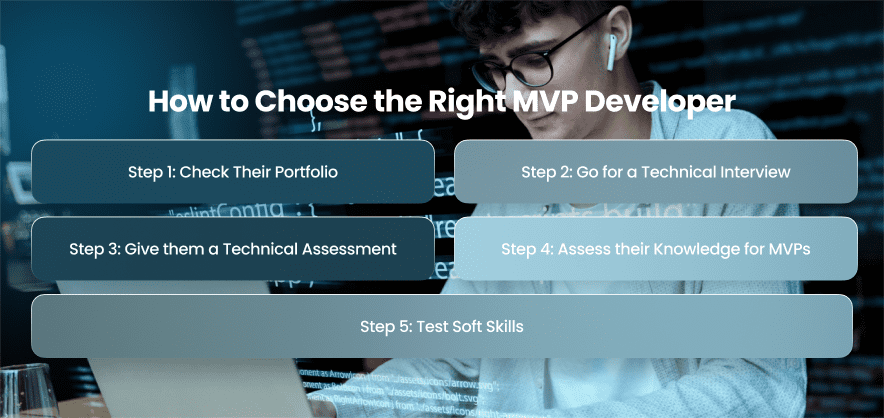
Before you hire an MVP developer for your project, you need to learn some crucial factors that play a critical role in engaging with the right resource. Let’s take you through the steps of hiring an MVP developer.
Step 1: Check Their Portfolio
Firstly, when you engage with an MVP developer, ask them to show their portfolio. Their portfolio will be enough to decide whether you are moving ahead to the second step or not. Looking into their previous projects and collaborations with startups will provide a better insight..
Step 2: Go for a Technical Interview
Secondly, conduct a technical interview. For this, ask him the relevant technical questions that will depict their capabilities. Moreover, if you are a non-technical person, have someone with you ask them technical questions.
Step 3: Give them a Technical Assessment
To be in safe hands, let the candidate go through a technical assessment test. In this test, give them tasks related to programming or the field you consider you need the most. This assessment will reveal if they qualify for the job or not.
Step 4: Assess their Knowledge for MVPs
Now, take them through some questions related to MVP development. Ask them how they prioritize features and handle changes in requirements and reprioritizing.
Step 5: Test Soft Skills
Lastly, test their soft skills. Analyze their communication skills and look at how they collaborate.
How to Collaborate with MVP Developers
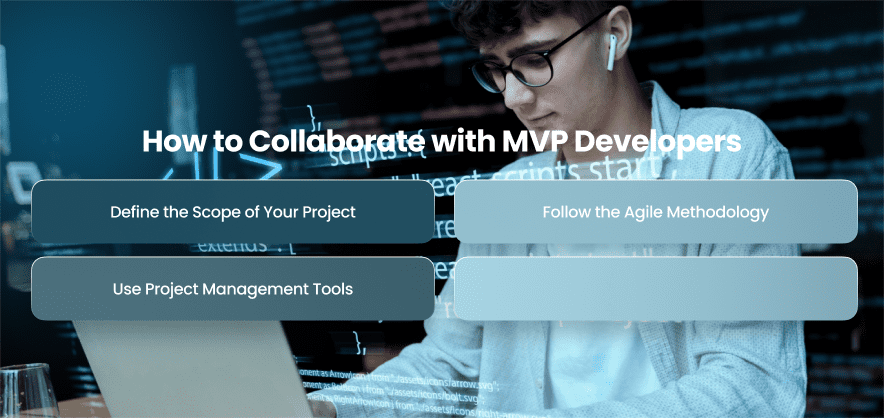
Once you are done with the hiring process, it’s time to onboard the resource on your project. Before you assign them their project, it is essential to make them know what they are at.
Define the Scope of Your Project
You have to tell them about your project, because it is your project and no one knows about it better than you. So, outline the core features using strategies such as user stories, wireframes, etc. Moreover, focus only on the most important features.
Follow the Agile Methodology
Following the agile methodology is the best option as MVP development involves various iterations and changes. So, break your work into sprints. Follow the build, test, get feedback, and iterate methodology for the best results.
Use Project Management Tools
To effectively manage your project and review the performance of the developer, you need to employ the right project management tools, which not only benefit you but also the developer.
Show Trust in Developer
Lastly, trust your developer. Let them handle the technical things while keeping yourself engaged in the strategic decisions for the project.
Wrapping Up
Therefore, acquiring an MVP developer is not only a technical issue, but a strategic one too. It is a make-or-break thing for your project. Hence, if you are on the verge of releasing an MVP, hire developers with a high level of expertise in the development of an MVP.

